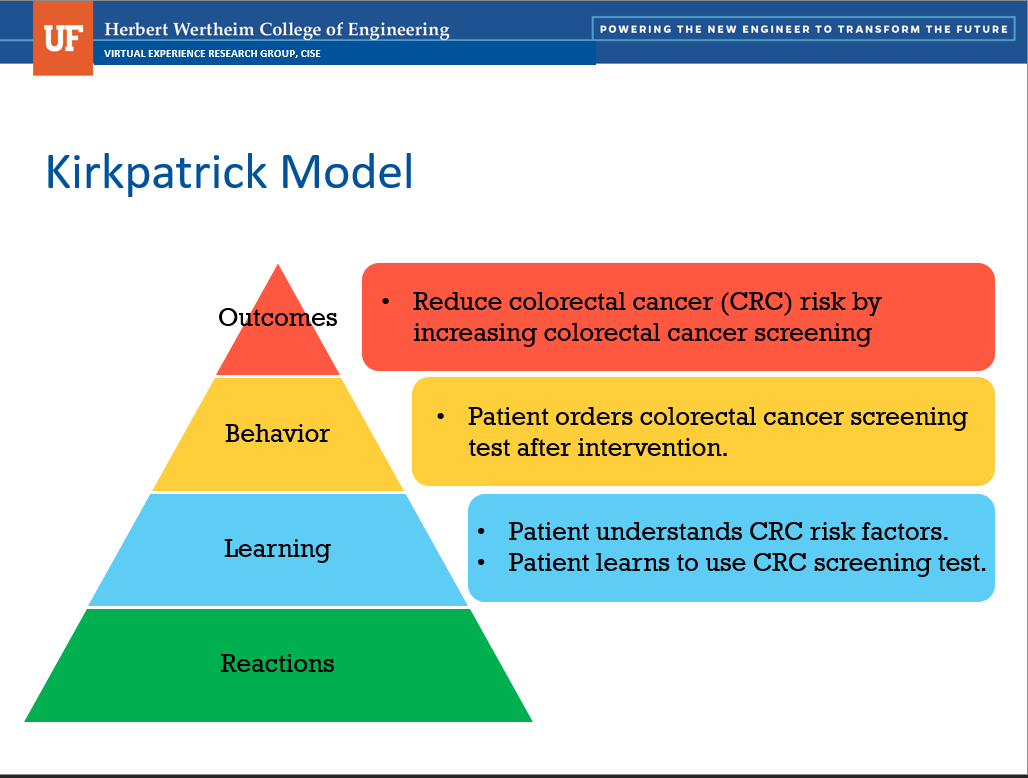Goals
The goal of the project was to develop a virtual agent-based health intervention to reduce colorectal cancer (CRC) risk by increasing colorectal cancer screening in patients.
Collaborators
Physicians, Communication Scientists, Community members.
My Role as Virtual Agent and User Experience Researcher
My role in the project was to:
- provide virtual agent domain knowledge for non-computer science experts. I helped team understand best-practices for designing agent-based health intervention based on prior literature on virtual agents and my prior experience of developing virtual agents.
- develop and iterate prototypes based on user feedback during iterative prototyping.
- develop a web-based system to deliver the intervention for 3000+ users for pilot and clinical studies.
Target Audience
At-Risk Colorectal Cancer Patients
Technology Used
Balsamiq for low-fidelity prototyping.
Unity, C#, Web Technologies for interactive system.
Approach
-
User-centered Design Process
The design process involved iterative prototyping with continuous user-testing. The development phase involved low and high fidelity prototypes to test and refine ideas.
-
Kirkpatrick Evaluation Model.
Kirkpatrick evaluation model was used to identify evaluation metrics.

User Testing
The system has been evaluated with 3000+ patients during pilot studies and is currently in clinical trials.
Results
- Virtual agents can influence user intentions to change health-related behavior outside the lab setting.
- Virtual agent messages can be made personally relevant to users by identifying the structure of the message using qualitative methods such as focus groups and interviews with target population.
- Virtual agents tailored to individual differences such as user’s race and gender have shown promising results in influencing user health-related intentions to change behavior.
Please refer following publications for more details.
Refereed Conference Proceedings
Zalake, M., Tavassoli, F., Griffin, L., Krieger, J., & Lok, B. (2019, July). Internet-based Tailored Virtual Human Health Intervention to Promote Colorectal Cancer Screening: Design Guidelines from Two User Studies. In Proceedings of the 19th ACM International Conference on Intelligent Virtual Agents (pp. 73-80). ACM. (Best Paper Award) Learn More
Abstracts/Poster
Wilson-Howard D, Vilaro MJ, Griffin L, Tavassoli F, Zalake M, Lok B, Modave F, Carek P, George T, Krieger J. (2019) Community engagement in the development of an mHealth app utilizing a black male virtual health assistant to promote colon cancer screening: An iterative study of credibility and likeability. Presented at the 12th Annual American Association for Cancer Research Special Conference, San Francisco, CA. Sept. 20-23, 2019. Learn More
Vilaro MJ, Griffin L, Tavassoli F, Zalake M, Lok B, Modave F, Carek P, George T, Krieger JL. (2019) Source credibility of a virtual health assistant communicating colorectal cancer screening messages among black women. Presented at DC Health Communication Conference, Fairfax, VA.